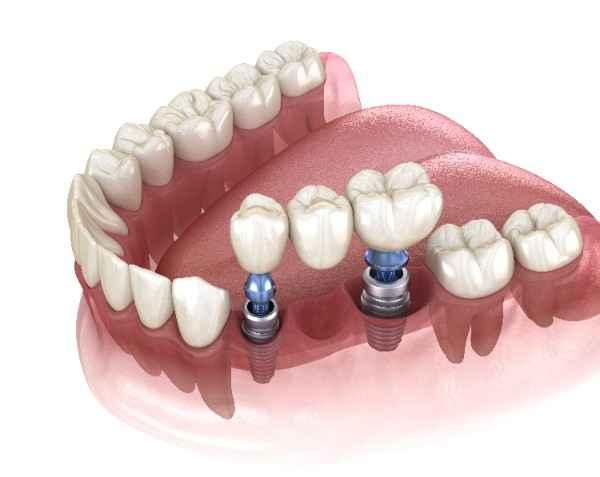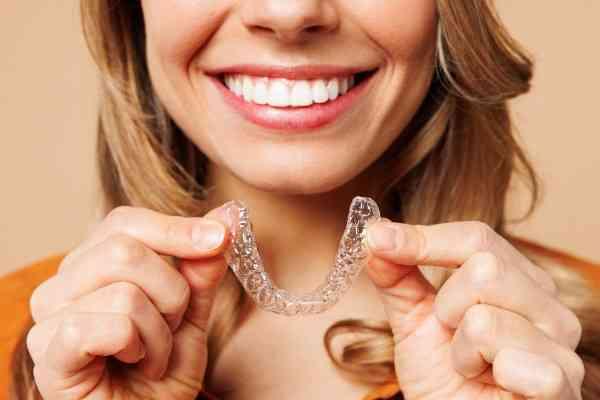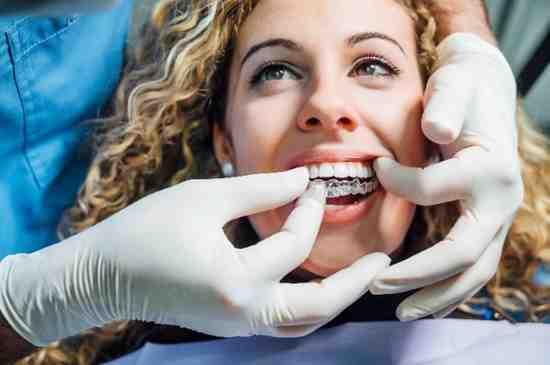Replacing missing teeth is a life‑changing decision that greatly impacts oral health, appearance, and confidence. If you live in Manchester and are considering restorations, two of the most reliable options are dental implants and bridges. Both solutions restore your ability to eat, speak, and smile comfortably, but they differ in technique, longevity, and benefits. Understanding the distinctions helps you make an informed choice suited to your needs and lifestyle.
The Basics: Dental Implants and Bridges
Dental implants in Manchester are titanium posts surgically placed into your jawbone to replace the missing tooth root. Once healed, a custom‑made crown is attached to complete your natural‑looking restoration. Implants mimic your tooth structure entirely, offering remarkable stability and durability.
In contrast, dental bridges consist of false teeth (pontics) anchored by crowns fitted onto adjacent teeth. While bridges provide a realistic and quick aesthetic fix, they rely on neighboring teeth for support, which can affect their long‑term health.
How Dental Implants Are Placed
The implant process involves several stages designed for maximum precision and comfort. After the initial consultation, your dentist evaluates bone density and oral health to ensure eligibility. A titanium implant is inserted into the jawbone, followed by a healing period where osseointegration—the fusion between bone and implant—occurs. Once stable, a connected abutment and final crown are placed.
This detailed approach ensures that dental implants Manchester offer excellent functionality and strength, comparable to natural teeth.

Materials and Durability Comparison
Dental implants are made from titanium or zirconia—materials known for biocompatibility and strength. They integrate seamlessly with your bone, preventing bone loss and maintaining facial structure. Bridges, typically crafted from porcelain fused to metal or ceramics, excel in aesthetics but may require replacements over time due to wear or decay in surrounding teeth.
The following table highlights key differences between dental implants and bridges, helping Manchester patients decide which suits their priorities:
| Feature | Dental Implants | Dental Bridges |
| Support Mechanism | Fused with the jawbone | Supported by adjacent teeth |
| Longevity | 15+ years, often lifelong | 7–10 years on average |
| Bone Preservation | Prevents bone loss | May lead to bone shrinkage |
| Aesthetic Results | Most natural appearance | Slightly less lifelike |
| Maintenance | Easy to clean individually | Special cleaning between crowns |
| Procedure Time | Several months (healing included) | Typically 1–3 appointments |
| Suitability | Ideal for one or multiple missing teeth | Best for small gaps or immediate repair |
Pros and Cons of Dental Implants
Dental implants are widely considered the gold standard for tooth replacement, especially across advanced practices in Manchester. They restore both function and facial harmony while requiring little maintenance. However, like any surgical treatment, it's essential to weigh both advantages and potential limitations.
Key pros and cons include:
- Appearance and stability: Implants look and feel identical to real teeth, offering exceptional bite strength.
- Long‑term oral health: They prevent bone deterioration and preserve surrounding teeth.
- Investment: While implants initially cost more than bridges, they last significantly longer, reducing future expenditure.
On the downside, implant placement demands adequate bone density, and healing times vary per individual. Your dentist may discuss bone grafting if additional support is required.
Advantages and Limitations of Bridges
Bridges remain a practical solution for those seeking swift results without surgery. The procedure usually requires two or three visits, and the restoration blends naturally with existing teeth.
However, limitations include:
- Impact on adjacent teeth: Supporting teeth may be filed down for crown placement.
- Bone loss risk: Unlike implants, bridges don't stimulate the jawbone, which can result in gradual shrinkage.
- Maintenance effort: Cleaning under the bridge is more intricate and crucial for long‑term hygiene.
Those with multiple or consecutive missing teeth might find dental implants in Manchester a more stable, comprehensive alternative.
Candidate Considerations
Choosing between implants and bridges depends on several personal and clinical factors such as bone quality, gum health, budget, and timeline. Patients with healthy gums and sufficient bone frequently qualify for implants, while bridges may suit those preferring quicker restoration or with medical conditions that restrict surgery.
Additionally, patients who have completed orthodontic treatments like Invisalign in Manchester often choose implants for final smile perfection, ensuring aligned teeth complement the restored ones seamlessly.
Benefits of Dental Implants in Manchester
- Bone protection: Stimulates natural bone growth and prevents deterioration.
- High success rate: Proven reliability when placed by skilled professionals.
- Natural comfort: Stable and functional feel, allowing normal eating and speaking.
- Enhanced facial aesthetics: Maintains jawline structure and youthful appearance.
When Dental Bridges May Be Preferable
- If bone density is inadequate, avoid surgical complexity.
- When budgeting for short‑term results, generally less expensive upfront.
- If multiple adjacent teeth need repair, Bridges can fill small gaps efficiently.
- When swift replacement is desired: Typically completed within weeks.
Complementary Cosmetic Solutions
- Combining with orthodontics: Invisalign in Manchester helps align remaining teeth before implant or bridge placement.
- Teeth whitening and veneers: Can enhance the color and uniformity of surrounding teeth.
- Regular check‑ups: Ongoing dental visits ensure sustained health and aesthetic appeal.
Long‑Term Maintenance and Care
Proper care extends the lifespan of any restoration. For implants, daily brushing, flossing, and periodic professional cleanings are essential. Bridges need careful cleaning beneath the pontics to prevent plaque build‑up. Many patients undergoing Invisalign in Manchester integrate advanced hygiene routines that also benefit restorations.
Routine dental examinations maintain gum health and detect minor issues early. By following recommended care, both options can remain functional and attractive for many years.
Cost, Recovery, and Lifestyle Factors
Dental implants often require a higher initial investment due to surgical precision and materials, but the long‑term benefits make them cost‑effective. Recovery involves mild discomfort for a few days, managed with routine analgesics. Once healed, implants feel indistinguishable from natural teeth and allow unrestricted diet choices.
Bridges offer faster placement and lower cost yet may lead to repeated replacements over time. Patients leading active lifestyles or valuing permanent results often prefer dental implants in Manchester for their resilience.
Choosing What's Right for You
The decision between implants and bridges shouldn't focus solely on appearance; Structural stability, comfort, and long‑term oral health are equally vital. A thorough examination and discussion with your local dentist will help determine the most suitable treatment.
If your teeth have shifted over time, combining restorations with invisalign Manchester ensures ideal alignment and bite function before new teeth are fitted. This synergy between orthodontic and restorative dentistry creates a balanced, confident smile.

Final Thoughts
Both dental implants and bridges effectively restore missing teeth, improve smile aesthetics and daily well-being. However, for most patients seeking lasting, natural‑feeling results, dental implants in Manchester generally offer unrivaled benefits in strength, comfort, and bone protection. At Smilo Dental Implants Group, our Manchester specialists provide tailored guidance to help patients choose between modern implants and bridges based on clinical suitability, desired outcomes, and personal preferences. Whether you need a single‑tooth restoration or comprehensive smile rehabilitation, expert care ensures every patient receives a confident, reliable solution.



